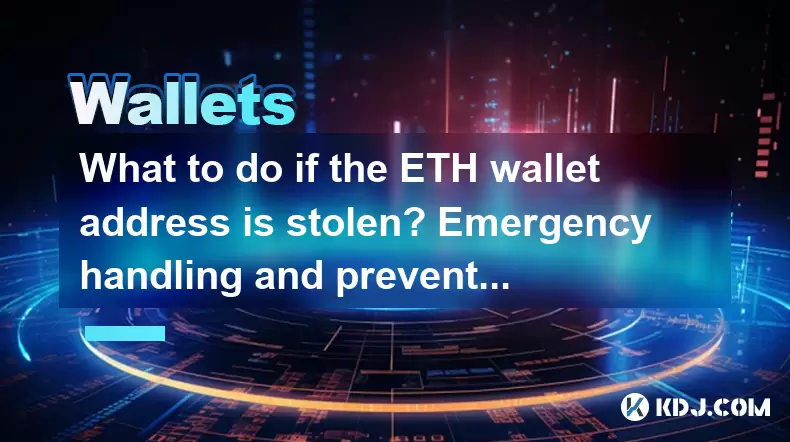-
 Bitcoin
Bitcoin $115000
0.12% -
 Ethereum
Ethereum $3701
4.50% -
 XRP
XRP $3.081
2.99% -
 Tether USDt
Tether USDt $0.0000
-0.01% -
 BNB
BNB $767.9
1.45% -
 Solana
Solana $169.5
3.13% -
 USDC
USDC $0.9999
0.01% -
 Dogecoin
Dogecoin $0.2106
4.30% -
 TRON
TRON $0.3334
1.62% -
 Cardano
Cardano $0.7564
2.54% -
 Stellar
Stellar $0.4165
0.76% -
 Hyperliquid
Hyperliquid $38.75
0.25% -
 Sui
Sui $3.593
3.00% -
 Chainlink
Chainlink $17.08
3.59% -
 Bitcoin Cash
Bitcoin Cash $573.6
4.35% -
 Hedera
Hedera $0.2508
-0.84% -
 Avalanche
Avalanche $23.07
6.46% -
 Ethena USDe
Ethena USDe $1.001
-0.02% -
 Litecoin
Litecoin $120.8
8.17% -
 UNUS SED LEO
UNUS SED LEO $8.943
-0.32% -
 Toncoin
Toncoin $3.400
-5.60% -
 Shiba Inu
Shiba Inu $0.00001255
1.54% -
 Uniswap
Uniswap $9.908
6.32% -
 Polkadot
Polkadot $3.718
2.10% -
 Monero
Monero $303.0
-0.74% -
 Dai
Dai $0.9999
-0.02% -
 Bitget Token
Bitget Token $4.392
0.91% -
 Cronos
Cronos $0.1403
6.31% -
 Pepe
Pepe $0.00001076
1.13% -
 Aave
Aave $267.2
1.80%
What to do if the ETH wallet address is stolen? Emergency handling and preventive measures
If your ETH wallet is stolen, disconnect compromised devices, change passwords, notify your wallet provider, and transfer remaining funds to a new, secure wallet.
May 13, 2025 at 11:14 pm

If your ETH wallet address has been stolen, it's crucial to act quickly to minimize potential losses and secure your assets. This article will guide you through emergency handling steps and preventive measures to protect your Ethereum holdings. Let's start with the immediate actions you should take upon discovering the theft.
Immediate Actions Upon Theft
Upon realizing that your ETH wallet address has been stolen, time is of the essence. Here are the critical steps you need to follow:
Disconnect the Compromised Device: If you believe the theft occurred through a compromised device, immediately disconnect it from the internet. This can prevent further unauthorized access to your accounts.
Change Passwords and Enable Two-Factor Authentication (2FA): Change the password for your wallet and any associated email accounts. If you haven't already, enable 2FA on these accounts to add an extra layer of security.
Notify Your Wallet Provider: Contact the customer support of your wallet provider. Explain the situation and ask for their assistance. Some wallet providers have specific protocols for handling stolen funds.
Report to Authorities: File a report with local law enforcement and, if applicable, with cybercrime units. While they may not be able to recover your funds, it's important for legal documentation and potential future investigations.
Monitor Your Transactions: Keep an eye on your wallet's transaction history. If you notice any unauthorized transactions, document them and report them to your wallet provider and authorities.
Securing Remaining Funds
After taking immediate actions, the next step is to secure any remaining funds in your wallet:
Transfer Remaining ETH to a New Wallet: Create a new wallet using a different provider or a hardware wallet. Transfer any remaining ETH to this new wallet immediately.
Use a Hardware Wallet: If you haven't already, consider using a hardware wallet like Ledger or Trezor. These devices store your private keys offline, significantly reducing the risk of theft.
Backup Your New Wallet: Make sure to securely backup your new wallet's recovery phrase. Store it in a safe, offline location, such as a safe deposit box or a secure safe at home.
Avoid Reusing Addresses: Do not reuse addresses from the compromised wallet. Generate new addresses for all future transactions to prevent linking them to the stolen address.
Preventive Measures to Protect Your ETH Wallet
To avoid future thefts, it's essential to implement robust preventive measures:
Use Strong, Unique Passwords: Use a password manager to generate and store complex passwords for your wallet and associated accounts. Never reuse passwords across different platforms.
Enable Two-Factor Authentication (2FA): Always enable 2FA on your wallet and email accounts. Use an authenticator app rather than SMS-based 2FA for added security.
Regularly Update Software: Keep your wallet software, operating system, and any other related software up to date. Updates often include security patches that protect against known vulnerabilities.
Be Wary of Phishing Attempts: Be cautious of emails, messages, or websites that ask for your wallet information or private keys. Always verify the authenticity of communications before responding or clicking on links.
Use a VPN: When accessing your wallet online, use a Virtual Private Network (VPN) to encrypt your internet connection and hide your IP address.
Understanding Wallet Security Best Practices
To further enhance your wallet security, it's important to understand and implement best practices:
Cold Storage: Store the majority of your ETH in cold storage, such as a hardware wallet or paper wallet, to minimize online exposure.
Multi-Signature Wallets: Consider using multi-signature wallets, which require multiple signatures (approvals) to authorize transactions. This adds an extra layer of security.
Regularly Audit Your Wallet: Periodically review your wallet's transaction history and security settings. This helps you detect any suspicious activity early.
Educate Yourself: Stay informed about the latest security threats and best practices in the cryptocurrency space. Knowledge is a powerful tool in preventing theft.
Recovering Stolen ETH
While recovering stolen ETH can be challenging, there are steps you can take to increase your chances:
Blockchain Analysis: Some blockchain analysis firms specialize in tracing stolen cryptocurrencies. Consider hiring one of these firms to help track your stolen ETH.
Contact Exchanges: If you believe the stolen ETH has been moved to an exchange, contact the exchange's support team. Provide them with transaction details and request that they freeze the funds.
Legal Action: Pursue legal action against the thief if you have enough evidence. This can be a lengthy and costly process, but it may help recover your funds.
Insurance: Some crypto insurance providers offer coverage against theft. If you have such insurance, file a claim as soon as possible.
Frequently Asked Questions
Q: Can I recover my stolen ETH if it has been moved to a different wallet?
A: Recovery is challenging but possible. You can hire blockchain analysis firms to trace the stolen ETH and contact exchanges where the funds may have been moved. Legal action and insurance claims can also be pursued.
Q: How can I tell if my ETH wallet has been compromised?
A: Signs of a compromised wallet include unauthorized transactions, changes in wallet settings without your knowledge, and receiving suspicious emails or messages. Regularly monitoring your wallet's transaction history can help you detect any unusual activity.
Q: Is it safe to store ETH on an exchange?
A: Storing ETH on an exchange is generally less secure than using a personal wallet, especially a hardware wallet. If you choose to store ETH on an exchange, ensure it has a strong security reputation and enable all available security features like 2FA.
Q: What should I do if I suspect my private key has been exposed?
A: If you suspect your private key has been exposed, immediately transfer any remaining funds to a new wallet with a new private key. Change all associated passwords and enable 2FA. Monitor your old wallet for any unauthorized transactions and report them to authorities and your wallet provider.
Disclaimer:info@kdj.com
The information provided is not trading advice. kdj.com does not assume any responsibility for any investments made based on the information provided in this article. Cryptocurrencies are highly volatile and it is highly recommended that you invest with caution after thorough research!
If you believe that the content used on this website infringes your copyright, please contact us immediately (info@kdj.com) and we will delete it promptly.
- Crypto Airdrops: Your August 2025 Guide to Free Tokens & Opportunities
- 2025-08-05 13:45:13
- Luxury Dining Reimagined: St. Regis Singapore & Marriott's Culinary Celebration
- 2025-08-05 13:45:13
- Fancy Farm Picnic: A Sneak Peek at the 2026 US House Race
- 2025-08-05 13:50:12
- Cardano Price, ADA Forecast & Ethereum Price: What's the Buzz?
- 2025-08-05 13:50:12
- Velo Universe, DEX, and DeFi Security: Navigating the Future of Decentralized Trading
- 2025-08-05 09:25:13
- Bitget Wallet Revolutionizes Solana with Gas-Free Transactions: A New Era for DeFi
- 2025-08-05 09:25:13
Related knowledge

How to add TRC20 token to Trust Wallet?
Aug 04,2025 at 11:35am
Understanding TRC20 and Trust Wallet CompatibilityTrust Wallet is a widely used cryptocurrency wallet that supports multiple blockchain networks, incl...

What is a watch-only wallet in Trust Wallet?
Aug 02,2025 at 03:36am
Understanding the Concept of a Watch-Only WalletA watch-only wallet in Trust Wallet allows users to monitor a cryptocurrency address without having ac...

Why can't I connect my Trust Wallet to a DApp?
Aug 04,2025 at 12:00pm
Understanding DApp Connectivity and Trust WalletConnecting your Trust Wallet to a decentralized application (DApp) is a common process in the cryptocu...

How to fix a stuck pending transaction in Trust Wallet?
Aug 03,2025 at 06:14am
Understanding Why Transactions Get Stuck in Trust WalletWhen using Trust Wallet, users may occasionally encounter a pending transaction that appears t...

What is a multi-coin wallet in Trust Wallet?
Aug 03,2025 at 04:43am
Understanding Multi-Coin Wallets in Trust WalletA multi-coin wallet in Trust Wallet refers to a digital wallet that supports multiple cryptocurrencies...

How to switch between networks in Trust Wallet?
Aug 02,2025 at 12:36pm
Understanding Network Switching in Trust WalletSwitching between networks in Trust Wallet allows users to manage assets across different blockchains s...

How to add TRC20 token to Trust Wallet?
Aug 04,2025 at 11:35am
Understanding TRC20 and Trust Wallet CompatibilityTrust Wallet is a widely used cryptocurrency wallet that supports multiple blockchain networks, incl...

What is a watch-only wallet in Trust Wallet?
Aug 02,2025 at 03:36am
Understanding the Concept of a Watch-Only WalletA watch-only wallet in Trust Wallet allows users to monitor a cryptocurrency address without having ac...

Why can't I connect my Trust Wallet to a DApp?
Aug 04,2025 at 12:00pm
Understanding DApp Connectivity and Trust WalletConnecting your Trust Wallet to a decentralized application (DApp) is a common process in the cryptocu...

How to fix a stuck pending transaction in Trust Wallet?
Aug 03,2025 at 06:14am
Understanding Why Transactions Get Stuck in Trust WalletWhen using Trust Wallet, users may occasionally encounter a pending transaction that appears t...

What is a multi-coin wallet in Trust Wallet?
Aug 03,2025 at 04:43am
Understanding Multi-Coin Wallets in Trust WalletA multi-coin wallet in Trust Wallet refers to a digital wallet that supports multiple cryptocurrencies...

How to switch between networks in Trust Wallet?
Aug 02,2025 at 12:36pm
Understanding Network Switching in Trust WalletSwitching between networks in Trust Wallet allows users to manage assets across different blockchains s...
See all articles

























































































